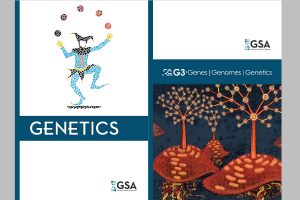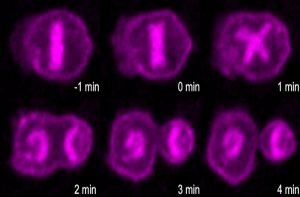Enter your address to receive notifications about new posts to your email.
Articles tagged Genetics Journal
(301 results)
-
Genetics Society of America announces Howard Lipshitz as new Editor in Chief of GENETICS
GENETICS, the flagship journal of the Genetics Society of America, is pleased to announce that Howard Lipshitz of the University of Toronto will become its Editor in Chief in January 2021. Mark Johnston of the University of Colorado School of Medicine has served as Editor in Chief of GENETICS since 2009. Johnston ushered in a…
-
Peer Review Week 2020: Trust in Peer Review
As we wrap up Peer Review Week 2020, here’s a look at how the GSA journals help build trust in peer review. Our data availability policy means that reviewers and editors can really dig into the data during the review process—and that readers can access the data and build on it moving forward! Expert…
-
GENETICS and G3 welcome new editors
GENETICS and G3 are pleased to announce three new editors: Yasuhiko Kawakami, Amy Ralston, and Jordan Ward. GENETICS Yasuhiko Kawakami University of Minnesota I am interested in understanding the mechanisms that regulate specification, proliferation and patterning, leading to morphogenesis of functional tissues and organs. I use mice and zebrafish to study mechanisms of development of the…
-
Genetics Society of America partners with Oxford University Press to publish journals
Oxford University Press (OUP) and the Genetics Society of America (GSA) are pleased to announce that OUP will publish the GSA journals GENETICS and G3: Genes|Genomes|Genetics beginning January 2021. GENETICS is a peer-reviewed, peer-edited journal with an international reach and increasing visibility and impact. Since 1916, GENETICS has published high-quality, original research presenting novel findings…
-
GENETICS welcomes new editors
GENETICS is excited to announce five new editors: Needhi Balla, Victoria Meller, Houra Merrikh, Yi Rao, and Yikang Rong. Needhi Balla University of California, Santa Cruz Needhi Bhalla received her B.A. at Columbia College and her Ph.D. at University of California, San Francisco, and she performed her post-doc training at…
-
GSA Journals Spotlight 2019
The GSA Journals, GENETICS and G3: Genes|Genomes|Genetics, are proud to present our annual Spotlight booklets for research published in 2019. Each Spotlight is a showcase of the excellent research and scholarship published over the course of the year, along with a selection of striking images submitted by our authors. Browse the 2019 GENETICS Spotlight. Browse the 2019 G3 Spotlight.
-
Three GENETICS articles from 2019 recognized with Editors’ Choice Awards
Congratulations to the winners of the Editors’ Choice Awards for outstanding articles published in GENETICS in 2019! The journal’s Editorial Board considered a diverse range of articles, finding many papers worthy of recognition. After much deliberation, they settled on one exceptional article for each of the three award categories: molecular genetics, population and evolutionary genetics, and quantitative genetics.…
-
Coffee and epistasis: a scientific story of sips and SNPs
Guest authors C. Brandon Ogbunugafor and Rafael F. Guerrero demystify higher order epistasis through a short story about the perfect brew. Epistasis is the flavor of the month Epistasis is one of the most popular and provocative topics in modern genetics. It has many different definitions, but one especially useful one is that epistasis is…
-
Finding fresh mutations
Improved duplex sequencing identifies spontaneous mutations in bacteria without long-term culturing. Spontaneous mutations are the driving force of evolution, yet, our ability to detect and study them can be limited to mutations that accumulate clonally. Sequencing technology often cannot identify very rare variants or discriminate between bona fide mutations and errors introduced during sample preparation.…
-
Feedback is welcome
Analysis of insulin-like signaling in C. elegans reveals extensive positive and negative feedback regulation. The insulin-like signaling system of nematode worms is comparable to that of more complex organisms; it helps regulate a wide range of the animal’s biology, including metabolism, growth, and development. This system is remarkably flexible, with the ability to maintain a…
-
Unequal divisions of death
Apoptotic pathway promotes asymmetric cell division during C. elegans development. Cell division doesn’t always produce identical daughter cells; often, the demands of multicellular development require cells to split into two quite different daughters with quite different fates. These “asymmetric” divisions are needed so that cells can differentiate and specialize, and some cells are even programmed…










